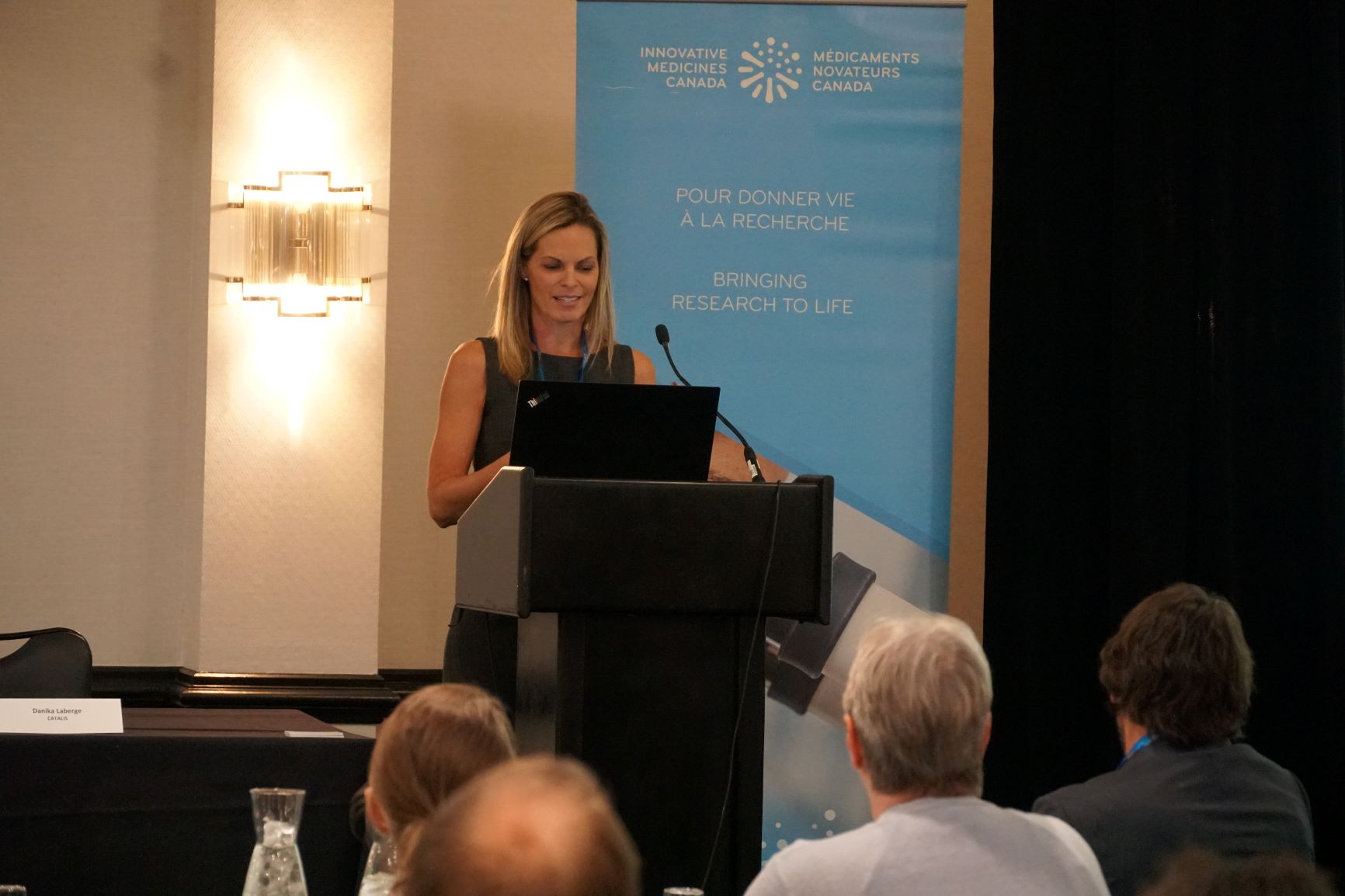The challenges of patient clinical trial access
According to patient and caregiver associations, patients and the public at large should be better informed about clinical trials. Danika Laberge, general manager of CATALIS Québec, brought this subject up for discussion during the annual Innovative Medicines Canada conference on June 18th.
“CATALIS Québec wants to collaborate with patients, patient associations and caregivers to promote patient engagement in clinical trials.”
According to the Center for Information & Study on Clinical Research Participation, fewer than 20% of patients learn about clinical trials from their attending physician. The situation is most likely similar in Quebec.
“My father was diagnosed with a very advanced cancer in 2003,” recounted Laberge. “Clinical trials were the only option we had to access the latest treatment innovations. He participated in two clinical trials, which extended his life by only a few months, but this experience convinced me of the importance of clinical research, so that one day we might be able to cure diseases that are still uncurable.”
Quebec currently attracts only 2% of the world’s clinical trials; as a result, patients have limited possibilities for innovative treatments and often have to travel outside the province to receive experimental treatment.
Panellists Martine Elias (Myeloma Canada), Mariam Mehran (Q-CROC), Barry Stein (Colorectal Cancer Canada) and Carole Abi Farah (Clinical Trials Simplified), as well as patient organizations in the audience highlighted the problems and misconceptions that undermine participation in clinical trials.
With today’s democratization of access to medical and scientific information, patients have become experts when it comes to their health. It is essential to offer them support and tools that will allow them to make informed decisions. Efforts to demystify clinical research should be stepped up and the work of clinical researchers and research teams should be given greater recognition by our health care system. It is also important to promote patient referrals among health and social service institutions and facilitate access to a complete list of clinical trials offered in the province.
In addition, in a context of personalized medicine and massive data use, Quebec also needs to adapt. According to Barry Stein, CEO of Colorectal Cancer Canada, performing molecular profiling as soon as metastatic cancer is diagnosed would allow a patient to be paired with a clinical trial that fits their genetic profile.
Quebec is an ideal location for conducting clinical research thanks to its well-known clinical researchers, state-of-the-art infrastructure and highly efficient regulatory approach.
The Government of Quebec invested $5.3M in 2017 to support the CATALIS initiative and the non-profit organization that was subsequently created, CATALIS Québec. “With our public and private partners, we will pursue our mission of positioning Quebec as a global leader in early clinical research,” concluded Laberge.

